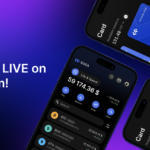- Fine-tuning GPT-4 empowers businesses to customize AI for specific needs, marking a shift toward AI as a service.
- OpenAI’s free tokens offer makes AI more accessible, letting companies tailor GPT-4 with just a few dozen training examples.
- Media companies are adapting to AI’s influence; while some, like Condé Nast, partner with OpenAI, others push back against its disruption.
Fine-tuning OpenAI’s GPT-4 model allows companies to make AI personalized at their end. It gives more control inside firms over the capabilities of AI. Not only will this enhance the performance of the model, but that also allows companies to optimize GPT-4 for more complex and domain-specific instructions.
Read CRYPTONEWSLAND on
google news
Incentives for Exploration: Free Training Tokens
OpenAI’s offer of one million free training tokens daily per organization until Sept. 23 encourages exploration. For its GPT-4o mini, companies receive two million tokens daily until the same date. Consequently, this initiative makes advanced AI technology more accessible, even for companies with limited data resources.
Significantly, developers can achieve noticeable improvements in model performance with just a few dozen examples in their training datasets. This means companies can tailor AI to their unique needs, regardless of industry or application.
AI’s Growing Role in the Media Industry
Furthermore, AI in the media sector is demonstrated by OpenAI’s recent collaboration with Condé Nast. The multi-year agreement allows OpenAI to train its algorithms on Condé Nast’s vast content collection. Additionally, news stories from magazines like Vogue and The New Yorker will be directly available to users.
OpenAI has already established partnerships with the Financial Times, the Associated Press, and Time Magazine. This is not their first cooperation. These kinds of partnerships are essential as media companies look for new ways to make money while defending their content.
However, not all media organizations are on board. In an effort to shield their material from AI companies, the Chicago Tribune and the New York Times have refused and gone to court. This conflict highlights the difficulties AI presents for conventional media business models, which mainly depend on search traffic to generate income.
As a result, search engines are evolving due to AI-powered search engines like OpenAI’s SearchGPT and Google’s AI tools. Instead of directing users to links, these engines offer conversational paragraphs, significantly impacting news media firms. The BBC has already taken steps to protect its content, while also exploring how generative AI can add value to their offerings.
Crypto News Land, also abbreviated as “CNL”, is an independent media entity – we are not affiliated with any company in the blockchain and cryptocurrency industry. We aim to provide fresh and relevant content that will help build up the crypto space since we believe in its potential to impact the world for the better. All of our news sources are credible and accurate as we know it, although we do not make any warranty as to the validity of their statements as well as their motive behind it. While we make sure to double-check the veracity of information from our sources, we do not make any assurances as to the timeliness and completeness of any information in our website as provided by our sources. Moreover, we disclaim any information on our website as investment or financial advice. We encourage all visitors to do your own research and consult with an expert in the relevant subject before making any investment or trading decision.









